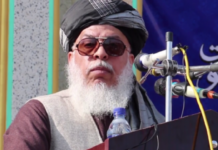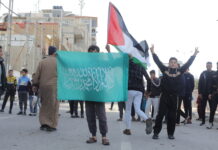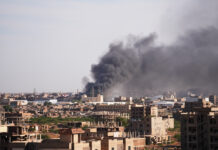In December last year the Kenyan government issued a directive to return all Somali refugees living in urban centers back to refugee camps. There was shock and disbelief among the Somali community who had already established successful businesses in major cities across Kenya. All their hard work would now go to waste, writes Mohammed Kahiye in Nairobi.
Most Somalis refused to go back to the camps because of the appalling conditions, lack of basic needs such as food, clean water and employment opportunities to support their families.
Six months later and the situation has totally changed. Several Somali refugees who have resided in Kenya for the last two decades are now more than willing to go back to their homeland.
On Thursday, refugees from all walks of life ranging from Somalis, Sudanese, Congolese and Burundis converged in Nairobi to mark the second “World Refugee Day”, which falls on June 20 every year.
Fuad Ali, 22, from Somalia was among hundreds of Somalis who attended the annual event and he and his fellow citizens are more optimistic that one day they will return to their country.
According to Fuad, the recent attack on the UNHRC compound in Mogadishu which resulted in more than 15 deaths including UN officials should not scare Somalis about returning home.
He said: “It’s quite normal, security is a major concern for all of us, but that does not mean we should not take a risk in rebuilding our country. The country needs us now like never before. I urge all Somali professionals to come back to rebuild and restore Somalia.”
Subscribe to our newsletter and stay updated on the latest news and updates from around the Muslim world!
There are more areas that are controlled by the government of President Hassan Sheikh Mohamud compared to a few years ago when the streets of Mogadishu were a battlefield between Al-Shabaab fighters and AMISOM forces. And the Adan Ade International airport, the hotel industry and the transactions of goods and services at Elman harbor port in the Indian Ocean has boosted the economy.
Repatriation of Somali refugees
Moreover, the government of Kenya is preparing to organize a major international conference in August to discuss ways of repatriating more than one million Somali refugees back to their country.
The conference, which will be held in the second week of August, will be hosted by the Kenyan government. The UNHCR and the International Organization for Immigration (IOM) will be also be attending.
Kenya’s Foreign Affairs Cabinet Secretary, Amina Mohamed, revealed that a group of international organizations are already mapping out safe places for the refugees to resettle, saying the exercise will be conducted in a “humane manner”.
Ms Mohamed said: “What I am happy about is that 50% of Somalis are voluntarily willing to return but we want this done in an orderly and humane manner, which upholds the dignity of our visitors.”
There are over one million Somali refugees, of which 600,000 are officially registered. Various organizations dealing with refugee issues have already compiled documents and reports on the places of origin for the refugees, half of whom crossed the border to Kenya in the last two years.
Ali Mohamed Sheikh, the First Secretary of the embassy of the Federal Republic of Somalia in Kenya, told 5 Pillarz that there will be no forceful repatriation of the refugees and a delegation is set for Somalia at the end of this month to assess the areas where refugees are expected to be resettled.
He said: “We want to make sure that refugees get access to clean water, education and health services when they are resettled back.” Mr Sheikh also stressed the need of security as the number one factor for the repatriation process to be successful.
Somalia has not had a stable government for over 20 years, following the ousting of dictator Said Barre with Kenya bearing the brunt of its neighbour’s instability as refugees fled into the country.
Kakuma in the west and Daadab in the north-east of Kenya are some of the biggest refugee populated areas, hosting hundreds of thousands of Somalis and Sudanese nationals. Another significant number of Somali refugees live in Nairobi as business entrepreneurs.
Peace?
Some politicians are saying that a new era of “peace” and “stability” has dawned on Somalia and the country is embarking on a dynamic path of political and economic renewal after 22 years of civil war.
The Somali government has also been recognized by the US, UK, EU, Turkey, UAE, Africa Union, World Bank and IMF.
However, armed opposition to the western and African Union-backed government remains strong and Somali clans remain divided, leading many to believe that optimistic assessments may prove misguided.




















